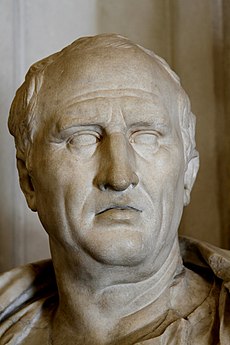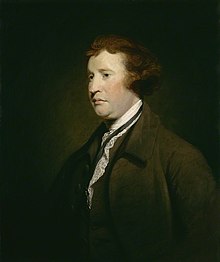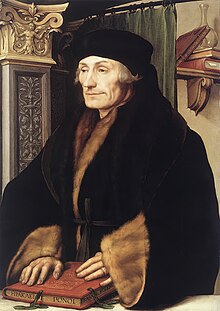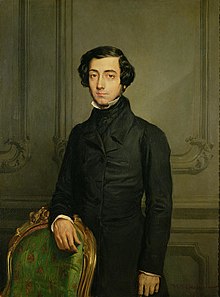
Natural law ethicists
Augustine of Hippo ( aw-GUST-in, US also AW-gə-steen; Latin: Aurelius Augustinus Hipponensis; 13 November 354 – 28 August 430), also known as Saint Augustine, was a theologian and philosopher of Berber origin and the bishop of Hippo Regius in Numidia, Roman North Africa. His writings influenced the development of Western philosophy and Western Christianity, and he is viewed as one of the most important Church Fathers of the Latin Church in the Patristic Period.
8 episodes
Episodes in this category also belong to the following categories:
Cicero
Melvyn Bragg and guests discuss Cicero's political ideas on laws, duty, tyrants and the republic, which he developed as the Roman Republic was threatened by Caesar and civil wars.
25 January 2018
Featuring: Melissa Lane, Catherine Steel, Valentina Arena
Philosophy1st-century BC Roman augurs, 1st-century BC Roman consulsPhilosophers of Roman ItalyRoman-era students in AthensDeaths by blade weaponsNatural law ethicistsTrope theoristsAncient Roman equites, Ancient Roman exilesAncient Roman jurists, Ancient Roman rhetoriciansExecuted writers1st-century BC writers in LatinExecuted philosophersRoman Republican praetorsLetter writers in LatinGolden Age Latin writersRoman quaestors2nd-century BC RomansPeople of the War of MutinaClassical humanistsEdmund Burke
Melvyn Bragg and guests discuss the work of the philosopher, politician and writer Edmund Burke, whose views on revolution in America and France were hugely influential.
3 June 2010
Featuring: Karen O'Brien, Richard Bourke, John Keane
PhilosophyBritish political philosophersEnglish libertariansNatural law ethicistsIrish Freemasons, Irish libertarians, Irish people of English descentBritish MPs 1774–1780Historians of the French RevolutionEnglish people of Irish descent18th-century philosophersClassical liberalismStreathamitesSocial philosophers18th-century English writersPhilosophers of economics18th-century Irish philosophersVirtue ethicistsCritics of deism18th-century English philosophersPhilosophers of cultureIrish AnglicansPhilosophers of education18th-century Irish writersPhilosophers of artBritish MPs 1784–1790, British MPs 1790–1796Writers from Dublin (city)18th-century Anglo-Irish people, 18th-century Irish male writersRectors of the University of GlasgowConservatismPolitical philosophersPhilosophers of religionAnglican philosophersAlumni of Trinity College DublinBritish MPs 1780–1784, Members of the Parliament of Great Britain for English constituenciesPhilosophers of history18th-century English male writersErasmus
Melvyn Bragg and his guests discuss the life and work of the Dutch humanist scholar Desiderius Erasmus, one of the most significant figures of the Renaissance.
9 February 2012
Featuring: Diarmaid MacCulloch, Eamon Duffy, Jill Kraye
Hobbes
Melvyn Bragg discusses Thomas Hobbes, the great 17th century philosopher who famously said that ungoverned man lived a life that was ‘solitary, poor, brutish and short’.
1 December 2005
Featuring: Quentin Skinner, David Wootton, Annabel Brett
PhilosophyEpistemologistsMaterialistsNatural law ethicistsAlumni of St John's College, Cambridge17th-century English philosophersTheorists on Western civilizationEnglish physicistsPhilosophers of lawSocial philosophersBritish philosophers of educationRhetoric theoristsBritish critics of ChristianityPhilosophers of culturePhilosophers of language17th-century writers in LatinBritish critics of religionsCritics of the Catholic Church17th-century English writersPolitical realistsPhilosophers of mathematicsEnglish theologiansEmpiricistsOntologistsPhilosophers of mindMetaphysiciansPhilosophers of religionThomas HobbesEnglish political philosophersPhilosophers of sciencePhilosophers of history17th-century English male writersKant's Copernican Revolution
Melvyn Bragg and guests discuss Kant's ideas on how the world depends on us, on the limits of human knowledge and why we are bound to ask questions we cannot answer.
3 June 2021
Featuring: Fiona Hughes, Anil Gomes, John Callanan
PhilosophyGerman philosophers of artNatural law ethicistsGerman philosophers of scienceGerman political philosophersMetaphilosophersPhilosophers of social sciencePhilosophers of warGerman Lutherans18th-century philosophersTheoretical historiansGerman nationalists19th-century German philosophersTheorists on Western civilizationPhilosophers of literatureGerman idealistsAge of EnlightenmentPhilosophers of logicLogiciansPhilosophers of lawPhilosophers of sexuality18th-century German writersPhilosophy writersRationalists18th-century German male writersKantianismGerman philosophers of mind, German philosophers of religionWriters about religion and science18th-century German philosophers, 18th-century essayists19th-century German male writers19th-century Prussian peopleHumor researchersGerman philosophers of culture19th-century German essayistsPeople of the Age of EnlightenmentGerman agnosticsGerman male essayistsOntologistsGerman ethicists, German philosophers of educationLecturersMembers of the Prussian Academy of SciencesIdealistsNatural philosophersEnlightenment philosophersGerman epistemologistsWriters about activism and social change19th-century German non-fiction writersGerman philosophers of historyGerman male non-fiction writersGerman logicians, Kantian philosophersPlato's Gorgias
Melvyn Bragg and guests discuss arguably the most personal of Plato's dialogues in which he examines the values that led to the execution of his mentor Socrates by drinking hemlock
25 November 2021
Featuring: Angie Hobbs, Frisbee Sheffield, Fiona Leigh
PhilosophyNatural law ethicistsPlatonismAncient Greek slaves and freedmenPhilosophers of deathTheorists on Western civilizationAncient Greek physicistsMoral realistsLogiciansAncient Greek epistemologists, Ancient Greek ethicistsRationalistsEpigrammatists of the Greek AnthologyPupils of SocratesPhilosophers of educationAncient Greek philosophers of mindOntologistsPhilosophers of loveClassical theismAttic Greek writersAncient Greek logiciansAncient Greek political philosophersIdealistsNatural philosophersAncient Greek metaphysiciansAncient Athenian philosophersSt Thomas Aquinas
Melvyn Bragg and guests discuss St Thomas Aquinas, the Catholic Church's foremost western philosopher and theologian.
17 September 2009
Featuring: Martin Palmer, John Haldane, Annabel Brett
PhilosophyMedieval Latin-language poets13th-century philosophersCritics of atheismNatural law ethicistsMagic (supernatural)Lutheran saintsThomas AquinasPhilosophers of lawDoctors of the Church13th-century writers in LatinAristotelian philosophersWriters about religion and scienceAngelic visionariesVirtue ethicistsChristian ethicistsCatholic philosophersSystematic theologiansChristian apologistsScholastic philosophersClassical theismMetaphysiciansDominican mysticsAnglican saintsUniversity of Paris alumniTocqueville: Democracy in America
Melvyn Bragg and guests discuss Alexis de Tocqueville and his study of the American democratic system, written as an example to France of how democracy might develop there.
22 March 2018
Featuring: Robert Gildea, Susan-Mary Grant, Jeremy Jennings
HistoryFrench political scientists19th-century French male writersPhilosophers of lawEconomic sociologistsFrench Roman CatholicsNatural law ethicistsFrench sociologistsMembers of the Académie FrançaiseFrench male non-fiction writersUniversity of Paris alumniWriters from ParisHistorians of the French Revolution19th-century French philosophersFrench political writersFrench philosophers of cultureFrench philosophers of historyKnights of the Legion of HonourFrench political philosophers







